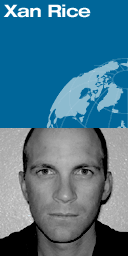 Somaliland is a beacon of stability in Africa but lack of international recognition is holding it back, writes Xan Rice
Somaliland is a beacon of stability in Africa but lack of international recognition is holding it back, writes Xan RiceIt was the little things: smiles; handshakes; driving from the airport without an armed escort; seeing a traffic warden, a public library, a government ministry building; not seeing a gun or hearing a gunshot. Even the weather seemed pleasantly different: a cool breeze floated over Hargeisa at night.
According to the map, this was still Somalia. Yet it felt like another country. "Because it is!" said Abdirahman Awil, a small, balding man who had invited me into his restaurant, suddenly becoming animated. "Somaliland is not Somalia - 100% of us know that, even 120%!"
The rest of world, however, is not so sure. Since 1991, Somaliland, the former British protectorate perched awkwardly on the north-western shoulder of Somalia, has claimed independence - and seen its claims ignored.
Yet each year, the call for sovereignty grows louder and the case grows stronger. For while Somalia continues to display all the signs of a model failed state, setting a post-second world war record for a country without an effective national government (15 years, three months and counting), Somaliland has achieved a level of stability and governance that puts many African countries to shame.
Since its split from the rest of Somalia in 1991, there have been three democratic elections in the breakaway state, the latest, in October last year, witnessed and commended by international observers. Clan divisions have been softened, and 50,000 fighters disarmed. Somaliland also has its own currency, its own passport and a growing economy that is not dependent on donor aid.
A quick glance at its history shows why Somaliland is so desperate to be on its own: having gained independence in June 1960, the former British Somaliland had six days of sovereignty before embracing the dream of a "greater Somalia" in the horn of Africa, formed by merging with Somalia, which had shaken off Italian rule.
The marriage soon soured, however, and then deteriorated rapidly under the reign of Mohamed Siad Barre, who took over the Somali presidency in a 1969 coup. Power, and the plum jobs, remained in the capital, Mogadishu; in Somaliland's capital, Hargeisa, resentment and armed opposition grew to the marginalisation by Barre.
Chastened, Barre decided to teach the Somalilanders a lesson. In 1988, bombers started taking off at Hargeisa's main airport and then dropping their payload on the homes below; artillery finished the job. About 50,000 people died, killed by their own government.
Today, Hargeisa has been completely rebuilt, largely with money from the diaspora in the US and Europe. But memories of 1988 will not fade soon. Perched on a plinth in the middle of town is a MiG fighter shot down during the fighting. It is a symbol of fierce intent. For Somalilanders, who formally asserted their desire for independence in a 2001 referendum, there is no going back.
"We are free and will remain so," said the Somaliland president, Dahir Riyale Kahin, last year. "My country will not talk to Somalia about unity, but we may talk about being good neighbours."
But will international recognition ever arrive? Opposition from Somalia's fragile transitional federal government is a significant stumbling block. Several African states, including South Africa and Ethiopia, are sympathetic to Somaliland's claim but reluctant to cause a diplomatic ruckus. Western nations are even more cautious.
So it is left to the African Union (AU) to take the lead. The AU's charter includes a provision that colonial-era boundaries should not be redrawn without consent from all the parties - in this case, Somalia and Somaliland. The clause was designed to prevent a flood of applications from secessionist movements around the continent seeking to redraw the often bizarre and illogical colonial borders.
But as Somaliland's foreign minister, Edna Adan Ismail, frequently points out, there is a way around this. During Somaliland's few days of independence in 1960 - before it merged with Somalia - it had the very colonial-era borders to which it now seeks to return. This means that, technically, the AU could recognise Somaliland without breaching its charter.
Recently, the AU has made some very positive noises. Last year it sent a delegation to Somaliland, and the team concluded that the claim for recognition was "historically unique and self-justified in African political history. As such, the AU should find a special method of dealing with this outstanding case."
Despite the progress, Somalilanders remain a frustrated lot. Until there is formal international recognition, there can be no access to lenders such as the World Bank and the IMF (though there are some who say aid may harm the momentum achieved so far through self-sufficiency).
For Mr Awil, the lack of international investment is more of a problem. Rumours abound of possible oil reserves, but no foreign company has stepped in to examine them. "Who wants to invest in a country that is not internationally recognised?" asked Mr Awil. "No one: it is too risky. That's what is really holding us back."
No comments:
Post a Comment